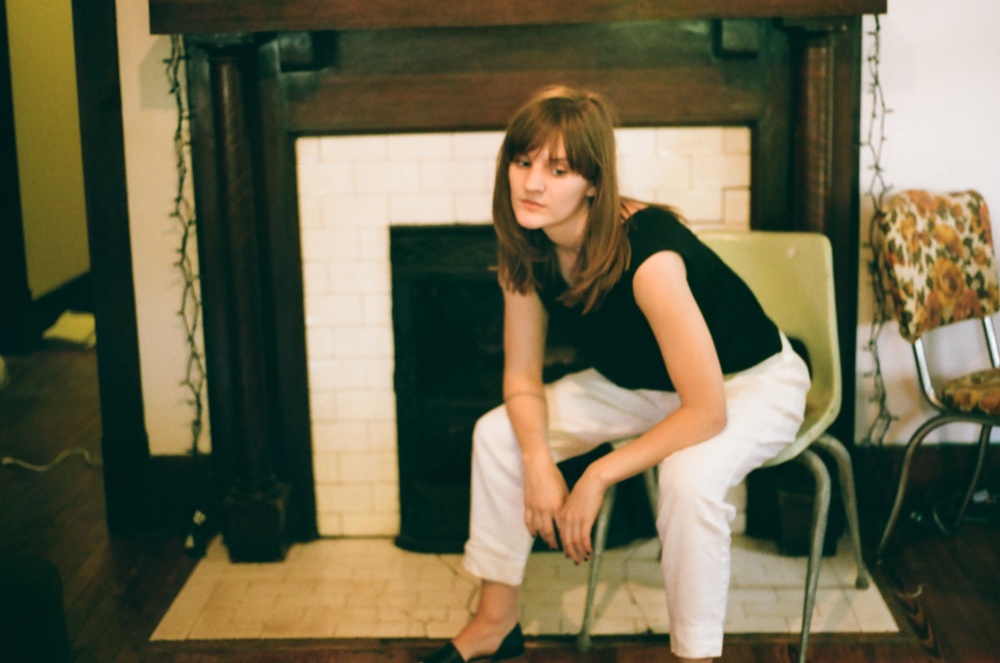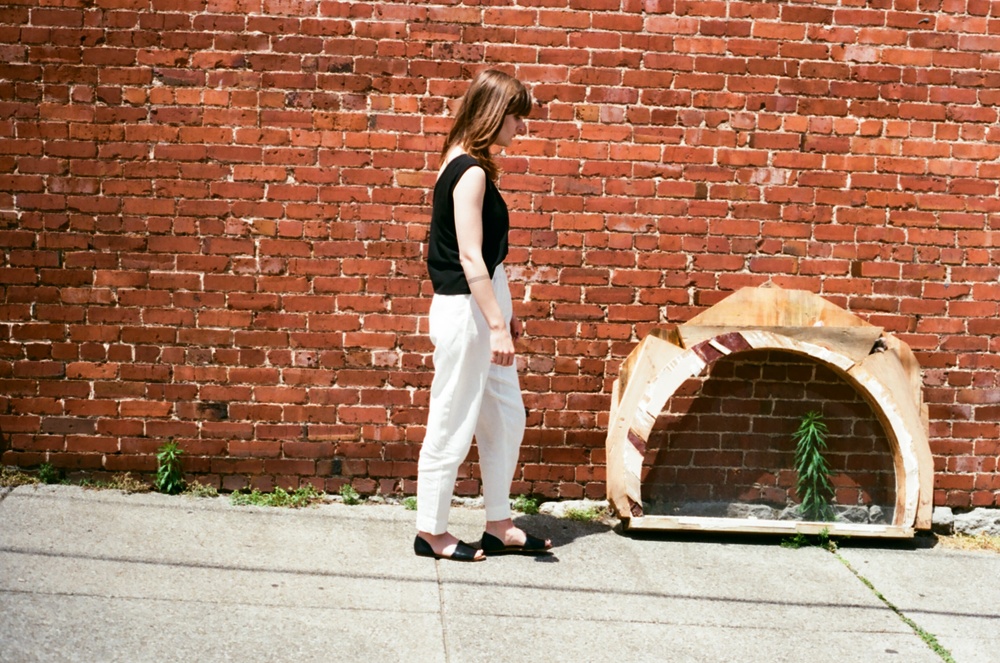Interview | Liza Anne
Time is a great force and a constant friend. It feeds our creative pursuits and sketches lines into our skin as we smile and cry. It separates friends and brings them back together. It folds stories into folklore and breaths life into memory.
The moments I’ve had with Liza have been infused with time in a way that is amazingly visible. For the first few moments of our conversation we were awed by the way time had both separated us and brought us together - and how the ideas that have danced around us and through us have changed and shifted but never truly changed.
We sat near a sunny window on a hot morning with iced coffee held between our fingers. The one thing that has always drawn me to Liza and that has never truly changed is her contagious energy. Not energy in the sense of physical animation but a mix of positivity and intense presence. She was there, sitting in front of me, and her eyes were fixed and listening and engaged.
“I’m so glad we’re having this conversation two years later,” she said after our initial excited words were exchanged and we had settled into our chairs. When sitting down in a somewhat formal interview setting and getting asked the same question as you were asked two years ago it’s a flashback and a moment of realization of the power that time holds - for both communicators. “I think now more than anything I am fighting to free all of the chaos and this very constant negative force that is always with me. For me I’ve spent so much time trying to put all of these very dark things to words and if I didn’t it would drive me to my insanity. So more than anything, my art is figuring out a space and a way to say and feel and think anything in the moment.”
Liza is a singer songwriter, a performer, a poet, a traveler - a human. When we first met we both tended to describe ourselves as our job description or the job description we were seeking for ourselves rather than identifying with the humanness that permeated through every beat of our heart and breath from our lungs. The language of humanity and self -the dark and the light - floated through the conversation and came easily to her as she spoke of her art.
“I’m trying to figure out ways to shed light on this interesting and personal, yet super universal thing we all go through,” she continued, “all of us need a space to say absolutely everything that comes into our head. Humanity has a really dark side and it’s so easily pushed aside and covered up. It’s like you’re rushed through things by everything around you but art gives you a way to sit with it and live with it.”
With the thought of speaking the dark in us, we began to uncover a common, and demeaning misconception that artists must suffer to create. Liza spoke with a calmness that lifted her words. “What I think is so interesting is that being alive in itself doesn’t always come with this terrible, great suffering but it comes with a daily struggle that is very real and very universal. Whether it’s this nonsense that our brains come up with or something incredibly impactful. The idea that writers or creators have to suffer intensely for their art makes me so sad. You think, ‘I need to fall out of love with someone, or my parents need to get divorced, or my sister needs to get cancer’ and that’s sick that we would think that. There’s a sadness when you wake up in the morning that people don’t even talk about. But it’s there and it’s real.”
Time always offers movement and some (or most) movement is intertwined with fear and anxiety. We weave in and out of it as we travel to find who we are and what we do. As we talked on our shared anxiety and the differences and similarities between us, we moved toward our pull to freedom. Freedom of creating, of speaking and listening. Freedom of lifestyle and freedom of choice. “Even in my battle with anxiety and depression,” she said, “with my mind working towards suffering and mental stress and all of these negative thoughts - it’s that moment when I’m freeing myself to work and create when I look my anxiety in the face and say ‘I know what you’re doing and I’m going to tell this room of people about it and feel better.’ We’re all dealing with this thing that likes to sit on our shoulders and wants to control us and keep us from saying yes. When I think of creating as a struggle it’s like I’m prostituting myself to this creation. Creating is completely in your DNA and that’s amazing.” As we spoke, it was a beautiful thought to think back on the words we shared years prior. We then talked of progress and excitement for the future and there, in the light filled coffee shop, we talked of our inner development and freedom in that to be who we are in each and every moment.
“I had an incredible experience a few months ago.” Liza said after a long sip of her coffee. We had begun to explore the conversation between freedom in creativity and freedom in femininity. “I was playing alone and didn’t have my band behind me so I was being apologetic for most of the show. Then some girl came up to me afterwards and said, ‘you don’t need to apologize for saying things that matter.” It was this amazingly simple realization that a lot of women live very apologetically because they believe, even subconsciously that they’re saying too much or doing too many things or they’re too emotional or they’re not being emotional enough. And I realized in that moment that that it’s an important statement to have a career that I want where I’m able to speak out, very emotionally and very boldly, saying I’m a woman and this is something I struggle with.” We paused in a silence and took in our surroundings. “And I’m still learning about what it means to be a woman and have a career and be creative. I just think it’s really important for other women to be telling women that you’re allowed to feel this way and speak out about it in any way that feels right. Our ability to be sensitive to the emotions of those around us and also to be bold and state our own emotions is one of the most powerful things.” As she explored her thoughts aloud I thought of the power of her words and the strength of her ideas. “Femininity has always been beauty and sensuality alongside a darkness and a sense of controllability. But from those places of control and oppression, because we have been told what to say for so long, the most important part about being creative as a woman is saying everything that needs to be said with power and unapologetically.”
Time is a beautiful thing and a powerful thing. Ideas are formed by it and conversation gives land in which we are able to explore. I’ve found it’s a rare (yet not so rare if you seek it out) and beautiful thing to sit next to someone and explore the terrain of the mind. It often is enchanting and empowering. And to do that with a woman, no matter age or race or occupation or social standing, who seeks creativity in each and every moment is altogether magical. It’s magic that can be carried with and through us and passed on.
Thank you Liza for sharing another conversation with me. Keep exploring, keep searching, and I’ll do the same.













